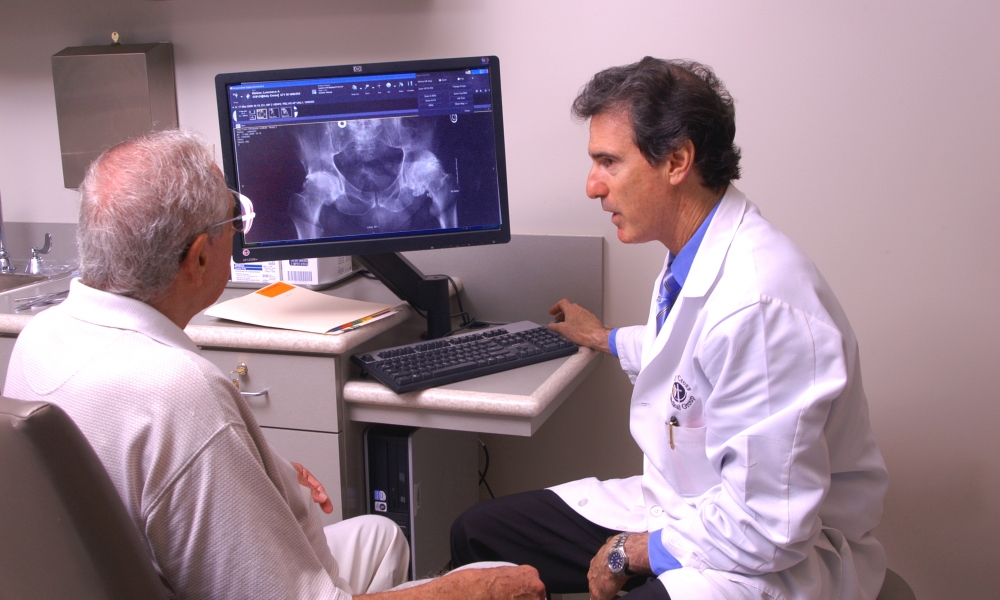When should I have my hip or knee replaced? When you’re surviving but not thriving.
Like almost everything in life, this decision is seldom black or white. It’s personal and different for each of us. I tell my patients that ultimately the decision to proceed with surgery is made “from within their own heart” and “when it feels right”. Not a very scientific answer, but it’s what I tell my patients. I tell them that most often that decision is made when someone feels “frustrated enough” that they no longer feel that they have “quality of life” or they’re “losing their mojo” or “edge”. They’re surviving but not thriving.
For many individuals, their hip or knee arthritis or condition results in people becoming depressed or feeling low because they’re no longer able to engage in activities that they enjoy and make them smile. These can be as simple as walking your dog, playing golf with your friends or dancing. For many their frustrations and fears are more basic like struggling to shop for food, cleaning their own home or apartment, or going up or down steps or a curb. Many individuals will share with me that their biggest fear is that they are losing their confidence and even fear they’ll fall. Very often the arthritic hip or knee condition causes pain and interferes with getting a good night’s sleep. There is little worse than feeling chronically tired. It’s hard to smile.
Nothing is less controlled or less planned than a fall, which can result in a fracture. A fracture is of course an emergency. Something must be done now, rather than in a planned fashion. It’s the definition of feeling vulnerable. One can only hope that someone will come to help you. That you’ll be taken to a “good hospital” with an emergency department, and a competent, kind physician will show up to care for you. Again, not necessary one of your choosing. Usually several doctors will be assigned to your care, rather than you choosing. Underlying conditions such as diabetes, cardiac complications or even prior hip or knee pathology will be assessed and those conditions optimized as best possible, emergently rather than electively addressed by your own physician or physicians specifically selected for you. In an emergency situation, this is a good as it gets. It’s the safety net. It’s important and it works, but it’s not optimal and not what most individuals would chose if they had a choice. It’s often not the best or certainly not the most controlled. Rather than plan and orchestrate your care, events unfold outside of your control. It’s a loss of independence. I know this would be one of my big fears.
The best or optimal care is when a problem can be solved electively. When the hip or knee problem is fully assessed electively, a diagnosis made and a plan of treatment created. Then that well laid out plan can be orchestrated both before surgery, during surgery and after surgery. This approach results in the best chance of not only having the best result but also having the most confident and best experience.
By definition of course, no one knows when an emergency is going to happen. But when I evaluate someone and they share with me that they’re losing mobility and have developed a nagging fear falling, we talk about this. We discuss solving their hip or knee problem electively vs. being forced to now solve an even more complex problem emergently. Their fear of an uncontrolled fall and injury must be part of their thought process when they decide to go forward with the decision for an elective hip or knee replacement.
For many of my patients it’s not as direr as a fracture or even loss of independence but every bit as important and personal. It boils down to quality of life. Of being able to enjoy your life and participate in activities that make you smile. My practice has wonderfully evolved since I opened my doors on the 30th of August 1989. This “art of Medicine”, while still very much an “art”, has moved toward becoming a more predictable science. Simply, patients who undergo elective hip replacement or knee replacement surgery (total knee or partial knee replacement), get well much faster and with significantly less pain than even 2 or 3 years ago. This results in them getting back into their full lives much sooner, such as driving, working, caring for their families, playing sports or just living independently and confidently.
One of the things that strikes me in terms of how my practice has evolved is the marked increase in the age range of individuals who I now seek me out routinely for a hip or knee replacement. Folks in their late 80’s and even 90’s who tell me they don’t want to live their last years disabled and dependent on others. I understand and respect this. I would feel this way.
At the other end of the spectrum, I treat patients in their 20’s and 30’s who have a hip or knee condition which can only be effectively treated with a hip or knee replacement. They have full lives to lead, but feel just as disabled, frustrated and limited. They’ve failed all other more conservative treatment modalities and invariably have been told they are too young and will have to wait 20 or more years before joint replacement because the prosthesis will not last, that they’ll need more surgery in the form of revision surgery which doesn’t always work as well as the first time, and revision surgeries that will be necessary can only be done so many times. These statements are not wrong. But putting life on hold, not being able to play with your kids, enjoy a comfortable walk after dinner or carry on in the work place with confidence, also must be part of the calculus.
I am often asked, how long will my prosthesis last? It remains the million-dollar question. It is impossible to make a precise prediction because there are so many variables for each individual case. The unique characteristics of an individual and the specific condition that lead to their arthritic joint to begin with all must be considered. Studies have shown that historically, total hip and knee replacements performed in individuals 15-20 years ago with prosthesis that have good tract records and optimally implanted continue to survive in approximately 85-90% of these individuals. This is with 15-20 year old technology and techniques.
So what has changed in the last 15-20 years? Our implant bearing surfaces are a magnitude (x10) better than early technology (starting approximately after the year 2000). This is mainly due to the superb performance of highly cross linked polyethylene and ceramics. Current studies demonstrate these bearing surfaces continue to perform extremely well both in older patients and younger very active patients.
Design aspects of the prosthesic implants have also evolved, resulting in a better and more predictable bond of the prosthesis to bone and a more secure locking of the plastic bearing to the metal tray or cup. In the case of the total hip, this better quality plastic has allowed for the use of larger prosthetic ball sizes which improves stability and hence decreases the risk of dislocation. Improved plastics, along with improved locking of the plastic to the metal tray in total knees, combined with refinements in the prosthetic shape plus an increased variety of the modular plastic inserts, result in many more surgical choices to optimize or customize the stability and kinematics for each individual patient. This has resulted in it becoming easier to achieve stability and kinematics that more closely match each individual.
A very important variable that can’t be underestimated has been the continued refinement and development of our surgical techniques, combined with new technologies that improve our ability to accurately, predictably and precisely perform the surgery. Less soft tissue trauma, more insight into optimal component positioning, better tools to balance soft tissues (PAL, OrthoSensor, Compute Navigation), offer a more refined ability to expose the joint for the reconstruction and a more robust closure.
So when a patient asks me how long their prosthesis will last I tell them honestly, I just don’t know. I share with them that many patients will live very active full lives without their prosthesis failing for 20 plus years and for many I believe 30 years or more. I think that’s an honest answer. Recognize younger, more active patients are less likely to have their prosthesis last as long as an older more sedentary person.
The other side of the equation that I think must also be taken into consideration when deciding when to proceed with a hip or knee replacement is our evolution in being able to revise or re-do the joints that do fail. Similar to my discussion above regarding the evolution of our techniques and our prosthesis when replacing a hip or knee for the first time, is a similar and just as profound evolution when revising a failed joint. The best opportunity to get the most optimal, long lasting joint replacement is clearly the first time the hip or knee is replaced. Fortunately our ability to revise failed joints has also improved wonderfully. Better prosthesis, better techniques, better insights.
In the end, the decision to have a hip or knee replacement is very personal, very individual and almost always life changing. While it is seldom a black or white decision, it’s one that hopefully can be made electively and thoughtfully. My advice is to become educated. Talk to contemporaries who you can relate to and learn what their experience has been. Meet different physicians for their advice and guidance. Educate yourself. If you do make the decision to go forward with having a hip or knee replacement, then the most important decision you’ll make is choosing the individual who will perform your surgery and where the surgery will be done.
Dr. William A. Leone is head of the Leone Center for Orthopedic Care at Holy Cross Hospital in Fort Lauderdale, Florida and has earned a reputation as one of the nation’s top orthopedic surgeons. An orthopedic surgeon with extensive experience, his specialty is solving complex hip and knee problems.
We thank you for your readership. If you would like a personal consultation, please contact our office at 954-489-4575 or by email at LeoneCenter@Holy-cross.com.






